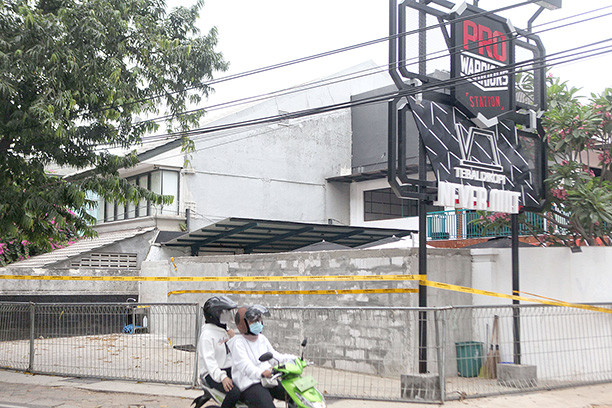
Police's plan to involve gangs to uphold COVID-19 health protocols causes concern
by Ghina GhaliyaThe National Police’s plan to involve community leaders and local gang leaders to help authorities raise awareness about the COVID-19 health protocols has been met with strong objections.
The deputy National Police chief Comr. Gen. Gatot Eddy Pramono said the move was a result of the limited number of police and Indonesian Military (TNI) personnel. The assistance of community and gang leaders, he argued, was needed as part of efforts to discipline the public amid the ongoing pandemic, especially regarding mask-wearing and physical-distancing measures.
In Indonesia, local gangs are linked to security in areas such as traditional markets and parking spots, which they “protect” in exchange for money.
“We don't recruit gang members, but we involve them. They are the informal part of raising public awareness, but not exactly to enforce local regulations," he said in a hearing with the House of Representatives on Monday.
Gatot, who also serves as deputy chief executive of the country's COVID-19 handling committee, said in addition to gangs other community groups would also be involved such as ojek (motorcycle taxi) groups and hobby-based communities like motorcycle enthusiasts.
In the hearing, he also asserted that the police and the TNI would supervise them so that they did not violate human rights.
"We will use those who are already among the existing communities. If we do this together, we can stop virus transmission.”
Gatot went on to say that the police would also carry out operations throughout Indonesia involving various parties in order to uphold the mandatory health protocols.
“The ones who will enforce security will still be the local Public Order Agency [Satpol PP],” said Gatot.
Didik Mukrianto of the Democratic Party criticized the initiative, saying that it could be counterproductive for society.
"I appreciate the spirit of the National Police in responding to the uncontrolled spread of COVID-19. However, the public perception of gangs is negative. They often disturb the communities themselves,” Didik said.
He added that the National Police must carefully recalculate the impact, including the psychological impact on society.
"I hope the police will be confident and believe that their personnel are more than capable of dealing with the COVID-19 pandemic. There’s no need to involve local gangs for this,” he added.
The Indonesian Market Traders Association (IKAPPI) Jakarta branch similarly rejected the plan, chairman of IKAPPI in Jakarta Miftahuddin said. He argued that instead of seeking help from local gangs, the authorities involve the scouts (Pramuka), traders associations, or heads of the blocks in the markets.
"The involvement of traders itself could increase other traders’ awareness,” Miftahuddin said as quoted by Tempo.co.
He said traders in Jakarta had experienced a drop in revenue of around 60-70 percent due to the previous large-scale social restrictions (PSBB) and they were currently trying to recover and restart their economic activities.
“They are recovering now. They will be intimidated by the presence of gang members watching their activities," he said.